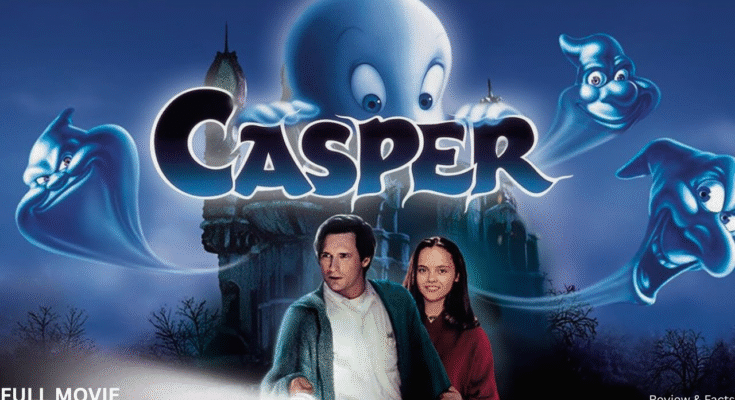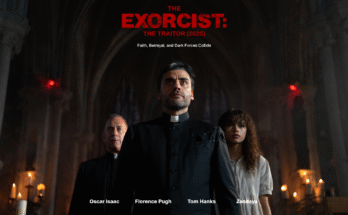In a cinematic landscape obsessed with darker reboots and cynical reimaginings, Casper (2025) arrives as a breath of spectral fresh air — a ghost story that dares to believe in warmth, humor, and second chances. Directed with both heart and spectacle by Tyler Perry, this unexpected fusion of supernatural adventure and soulful comedy takes the world’s friendliest ghost and pairs him with one of modern cinema’s boldest personalities: Madea. The result is an enchanting, hilarious, and surprisingly emotional journey that reminds us why we ever cared about ghosts in the first place.
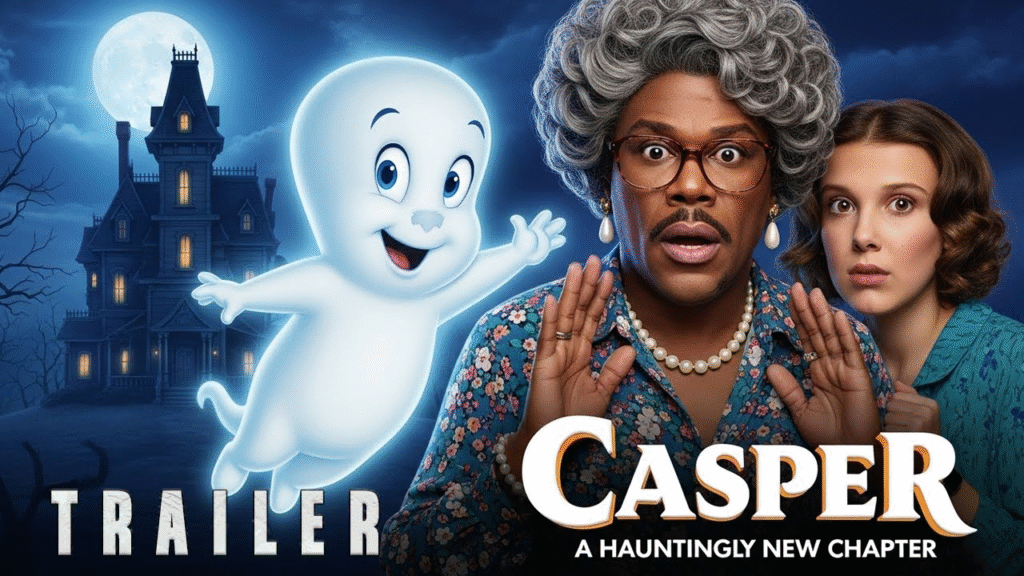
The film begins with a soft chill — a creaking mansion, wind through shattered windows, moonlight spilling across forgotten portraits. When the new family steps into this long-abandoned Victorian home, they bring with them not just luggage but emotional baggage: broken trust, silence, and distance. It’s here, in the spaces between grief and laughter, that Casper reappears — voiced with tenderness and quiet optimism by Jacob Tremblay. He’s no longer just the lonely boy who wants a friend; he’s a guardian spirit watching over a home — and perhaps, a family — that has forgotten what love feels like.
Then comes Madea. Tyler Perry’s Madea storms into the film like a whirlwind of sass and exasperation, her booming voice echoing through haunted hallways as she demands the ghosts “pay rent or get evicted.” What could have been a one-note joke quickly becomes the movie’s emotional backbone. Her no-nonsense approach to the supernatural collides beautifully with Casper’s gentleness, turning their odd-couple dynamic into one of the film’s greatest delights. Perry gives Madea surprising depth — behind her laughter is someone who understands loss, and who finds in Casper’s kindness a reflection of her own buried compassion.
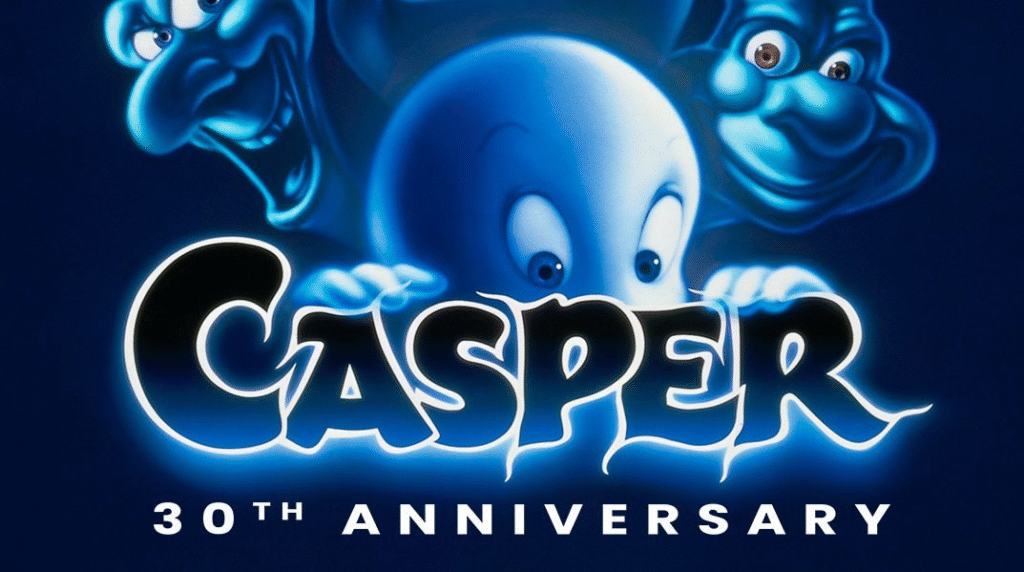
Millie Bobby Brown shines as the skeptical teenager who anchors the film’s emotional arc. Her character, Lily, doesn’t believe in ghosts — or in anything magical, really. But when she begins to hear faint whispers in the walls and glimpses a translucent figure in the moonlight, her disbelief crumbles. Millie plays Lily with that familiar blend of strength and vulnerability, capturing the pain of someone who hides fear behind defiance. Her evolving bond with Casper becomes the heart of the story — a reminder that healing often begins with the unseen.
As the mysteries of the mansion unravel, the tone shifts from cozy to chilling. Beneath the mansion lies a sealed passageway — a secret that ties Casper’s past to a betrayal that spans generations. The production design shines here: twisted corridors dripping with cobwebs, flickering lanterns casting ghostly shapes, and walls that seem to breathe. When the dark spirit finally awakens — a ghost far more ancient and malevolent than Casper’s mischievous uncles — the film crescendos into a supernatural showdown that balances tension with heart.
Tyler Perry’s direction finds a delicate rhythm between scares and sincerity. He never allows the humor to undermine the horror, or the sentimentality to drown the suspense. Instead, Casper (2025) feels like a campfire story told with modern polish — glowing with nostalgia but brave enough to explore deeper emotional truths. Beneath the jokes and jump scares lies a story about grief, forgiveness, and the courage to move on.
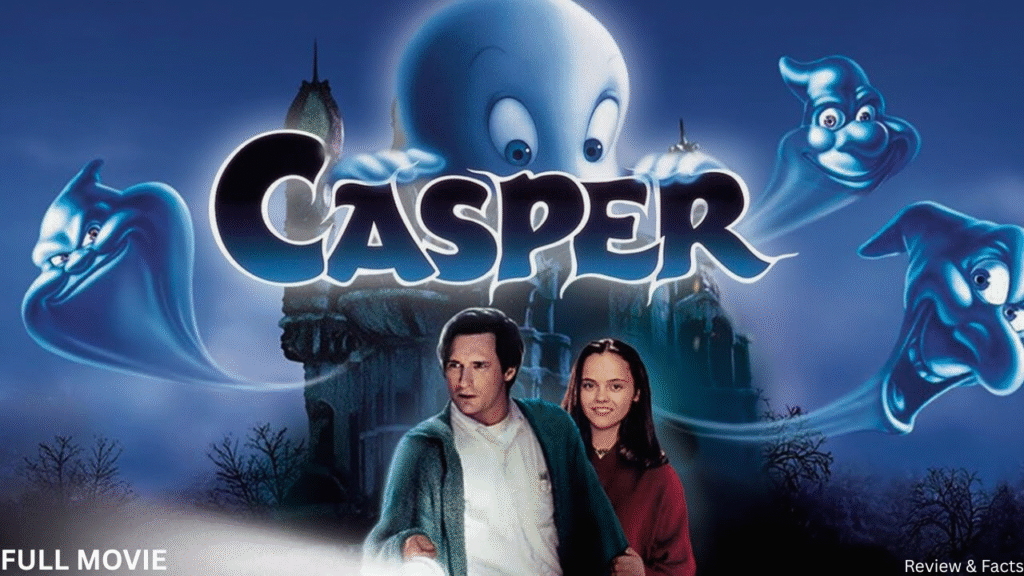
The chemistry between Madea and Casper becomes the movie’s unexpected triumph. Their banter is electric — Madea’s skepticism versus Casper’s soft optimism — but their eventual friendship hits harder than expected. When they team up to protect Lily and her neighbor (a charmingly nerdy Jacob Tremblay) from the vengeful ghost, the film transforms into a spiritual buddy comedy with real soul.
Visually, the movie is stunning. Cinematographer Autumn Durald Arkapaw (Loki, The Marvels) bathes the mansion in silvery light and shadowy warmth, making every frame shimmer with supernatural beauty. The spectral effects are delicate — Casper glows not like a cartoon but like moonlight caught in motion, and the darker entities move with unsettling fluidity. The blend of practical effects and CGI creates a tactile sense of wonder, grounding the fantasy in emotional realism.
The score, composed by Christophe Beck (Ant-Man, Frozen), walks the line between whimsical and mournful. Gentle piano motifs give way to eerie violins, then swell into uplifting orchestral bursts as the characters find courage. It’s music that feels alive — a perfect mirror to the film’s themes of life beyond loss.

In its final act, Casper (2025) delivers a message as timeless as the ghost himself: that kindness never dies. The emotional crescendo — Casper’s final choice, Madea’s unexpected vulnerability, and Lily’s realization that “letting go doesn’t mean forgetting” — brings tears without manipulation. Perry doesn’t preach; he simply allows the audience to feel the warmth of connection across the veil.
By the time the credits roll, Casper (2025) has accomplished something rare: it honors its legacy while reinventing it for a new generation. It’s funny, heartfelt, spooky, and radiant with hope — a ghost story about what it means to be alive. Tyler Perry’s bold creative gamble pays off, turning what could’ve been a gimmick into a modern classic of supernatural storytelling.
